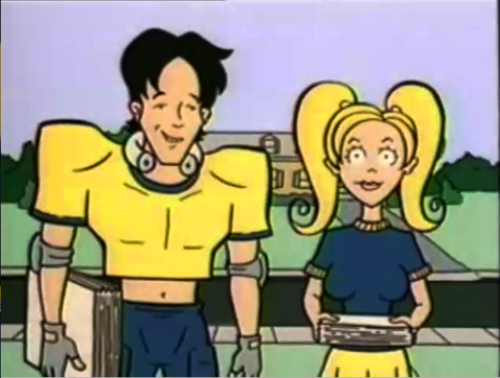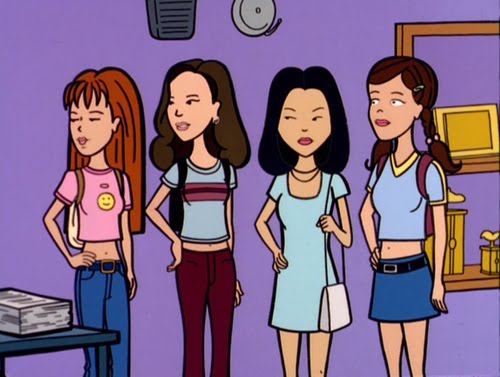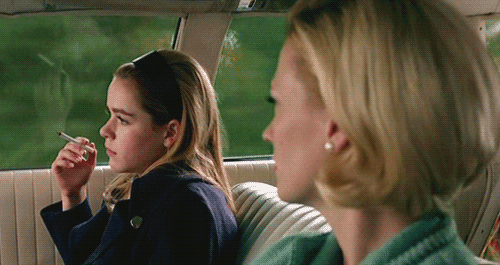When I talk about Twin Peaks, I always feel it necessary to mention that my fascination and obsession with the show lies much deeper than a regard for its moody aesthetics or an appreciation for David Lynch as a director (although I very much appreciate David Lynch). For me, it is more than just a TV show and cultural icon, it is something very spiritual to me, something that speaks to the dark places of my soul that I thought nothing could ever penetrate.
Twin Peaks is often name-dropped by mainstream media and bloggers as a quirky supernatural detective show, an interesting piece of '90s ephemera, while its more significant themes of abuse and incest are largely ignored in favour of references to cherry pie and saddle shoes. It's not that I mean to be pretentious, as if I'm the only one who loves the show for its dark themes and connects with it emotionally, because many women in the fandom do, but I do feel that certain aspects of the show are overrepresented while other elements of the show (as well as important and meaningful characters) are largely ignored.
With that in mind, I'd like to devote some time to arguably my favourite character in the series, waitress Shelly Johnson.
Unlike the other ladies of Twin Peaks, not much of Shelly's backstory is explicitly stated, other than that she dropped out of high school to marry truck-driver Leo. However, there is much we can infer about her life based on context and clues given by the show and tie-in materials.
At the time we are introduced to Shelly, she is 19 years old, and she states that she dropped out of eleventh grade to marry Leo, which means that she has been married to him for at least two years. She works at the Double R Diner as a waitress and seems to be friends with the proprietor Norma (who, at 35 or so, plays somewhat of a maternal role towards Shelly).
The biggest question about Shelly seems to be "why is she so alone?". Her parents or any sort of family are never mentioned and she doesn't seem to have anywhere to go to get away from Leo's abuse. She also seems to lack any of the resources that she would need to escape from him: she doesn't have any money of her own (likely because Leo takes all her earnings from the diner) and she also seems to lack a lot of adult life skills, like driving.
None of this seems coincidental to me. I think it is indicative of a history of parental abuse for Shelly. It's important to think about the context here: what would be going on in Shelly's everyday life that would lead to her dropping out of school and moving out to marry a truck driver? Why else would anyone be so desperate to get out of their parents' house? Of course, the sad irony is that because Shelly probably grew up in an abusive household, she would be unlikely to recognize the red flags and warning signs of abusive behaviour in Leo, as she would have become so accustomed to abuse at home that she wouldn't be able to recognize what wasn't normal.
It seems to me that Shelly has known abuse all her life, and that she is not so dissimilar from her deceased peer, Laura Palmer. Shelly is 19, Laura was 17- they would have passed each other in the halls at school before Shelly dropped out, and they knew each other from volunteering from Meals on Wheels. They were both abuse victims and were both involved with Leo Johnson.
It's clear that Leo intended to murder Shelly when when he tied her up and set the mill on fire, and I have to wonder- would Shelly's death elicit as much mourning and sympathy as Laura's? I doubt it. Everyone in town knew Laura, and everyone knew Shelly too, but in a different context. And that context is what makes the difference. Shelly is "white trash"- a girl from the Wrong Side Of Town who dropped out of high school to marry a truck driver and work as a waitress. It's clear from contextual evidence that the townspeople, even Sheriff Truman, knew that Leo was beating Shelly (and probably raping her too) but no one did anything about it, not even Bobby, who is supposed to care about her. Nobody even offered her a place to stay.
I guess it makes sense for the sake of the narrative, but my heart goes out to Shelly. She's a sweet, adorable girl with a loving heart who makes great pies. She deserves just as much concern and sympathy as any other abuse victim, but she will never get it, because of her class status. I think that's often the way of life though.
I don't mean to lessen Laura's suffering or say that Shelly deserves more sympathy than her, because Twin Peaks is largely a series about the different forms abuse may take and the way it affects all kinds of women (Laura, Shelly, Audrey, Josie, and even Norma to an extent). It's about how nobody deserves abuse no matter if they're a "Bad Girl" or a "Good Girl". I just wish that people paid more attention to this aspect of the show and Shelly's storyline when discussing the themes present in Twin Peaks.









